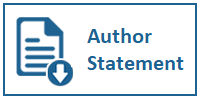CONSUMER IMPULSE BUYING BEHAVIOUR: THE ROLE OF CONFIDENCE AS A MODERATING EFFECT
DOI:
https://doi.org/10.31937/manajemen.v14i2.2937Abstract
Abstract- To evaluate impulse buying behaviour in consumers and how confidence moderates the variables being tested, which is an interesting phenomenon considering the fact that personal values and perceptions dictate each and every individual's behaviour as a consumer. This research paper attempts to elaborate consumer behaviour of individuals who purchase on impulse through social comparison, materialistic tendencies, negative affectivity, and confidence levels of individuals. This research topic is relatively new as there hasn't been any study done which examines impulse buying in Indonesian citizens with the following variables that have been conducted in Vietnam, let alone conducted under post Covid-19 conditions. The data gathered was obtained through a Google Forms questionnaire in which respondents had to use the Likert Scale to rate the agreeability of each statement. The data was compiled and processed using Smart-PLS 4 software. This research showed that social comparison and materialism positively impacted impulse buying but negative affect did not. Furthermore, confidence moderated the relationship between social comparison and impulse buying but did not moderate the relationship between impulse buying and social comparison. It can be concluded that everyone is unique in terms of behaviour and mindset which may benefit marketers to develop effective marketing strategies to induce purchasing behaviours. This research may also act as a reminder for consumers to spend wisely.
Keywords: Impulse Buying; Social Comparison; Materialism; Negative Affect; Confidence
Downloads
Downloads
Published
How to Cite
Issue
Section
License
Authors retain copyright and grant the journal right of first publication with the work simultaneously licensed under a Creative Commons Attribution-ShareAlike International License (CC-BY-SA 4.0) that allows others to share the work with an acknowledgement of the work's authorship and initial publication in this journal.
Authors are able to enter into separate, additional contractual arrangements for the non-exclusive distribution of the journal's published version of the work (e.g., post it to an institutional repository or publish it in a book), with an acknowledgement of its initial publication in this journal.















